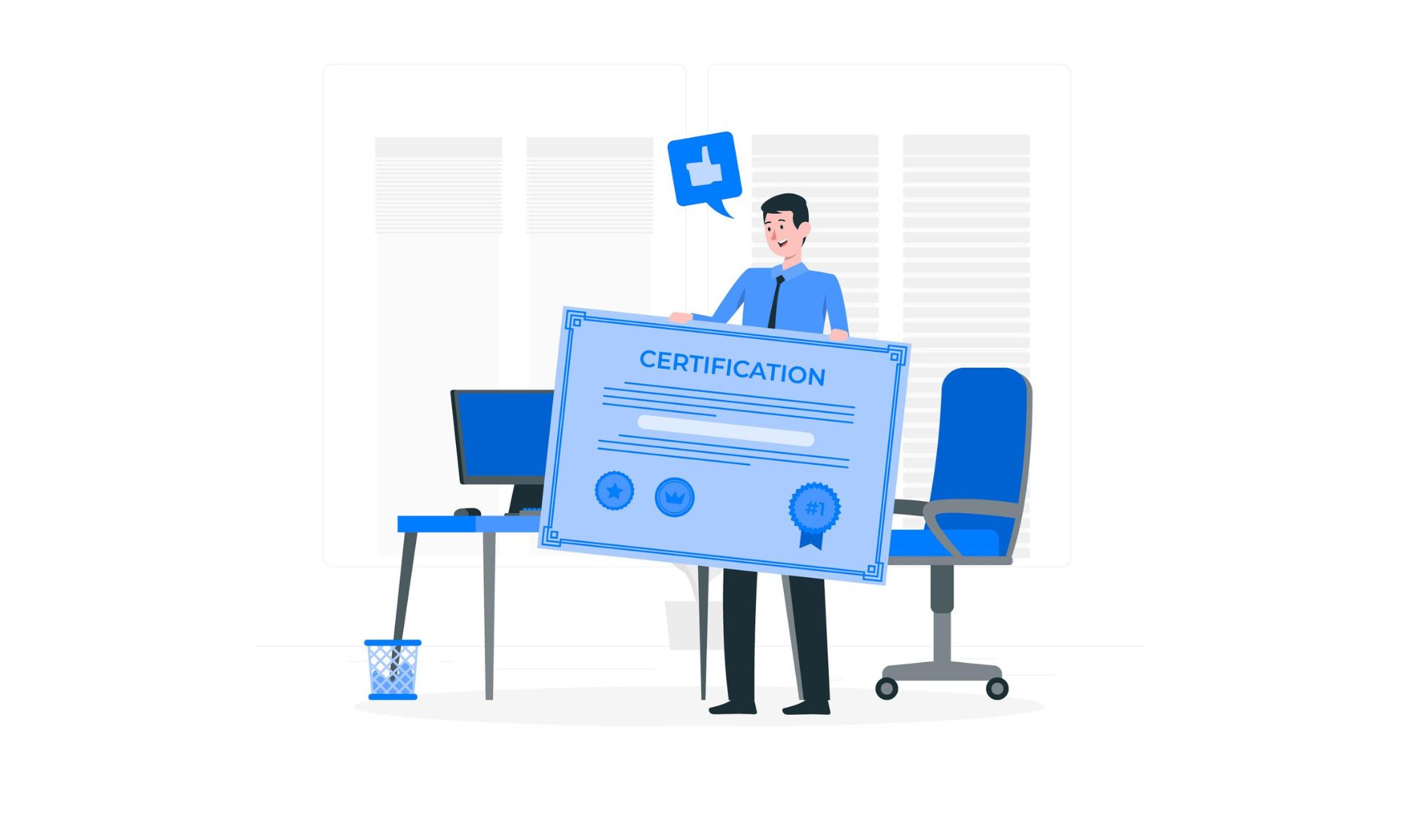SSIP Certification: What It Is and Why Your Business Needs It
22 May 2025
6 Mins Read

- What Is SSIP Certification?
- Why Your Business Needs SSIP Certification
- 1. Win More Work
- 2. Meet Legal Obligations
- 3. Save Time and Reduce Admin
- 4. Improve Workplace Safety
- What Does the SSIP Certification Process Involve?
- Step 1: Gather Your Documentation
- Step 2: Submit Your Application
- Step 3: Assessment and Feedback
- Step 4: Achieve SSIP Certification
- Common Mistakes to Avoid
- Thinking Certification Is a One-Off Task
- Using Generic or Outdated Documents
- Ignoring Staff Engagement
- How SSIP Certification Works Across Different Industries
- The Long-Term Value Of SSIP Certification
- Final Thoughts
In sectors like construction, engineering, maintenance, and facilities management, health and safety compliance isn’t optional — it’s expected.
The clients and principal contractors emphasize demonstrating robust health and safety performance.
This is where the SSIP certification (Safety Schemes in Procurement) has emerged as a streamlined. It is a credible way for businesses to prove they meet core safety standards.
But what exactly is SSIP certification, why does it matter, and how can your business benefit from it?
This guide answers these questions, debunks common myths, and outlines how to approach the process effectively, especially if you want to win more work, stay compliant, and improve operational efficiency.
What Is SSIP Certification?

Launched in 2009, SSIP stands for Safety Schemes in Procurement, a UK-wide initiative. The aim was simple: to reduce the burden of health and safety prequalification across supply chains.
So, what was the scenario before SSIP? The contractors and suppliers often had to complete multiple prequalification questionnaires for different clients, each with their own criteria, forms, and assessments. This was inefficient and costly.
SSIP solved this by creating a mutual recognition system. If you achieve certification through any SSIP member scheme, your compliance is recognised across all other SSIP members.
That means you don’t need to repeat the process for every buyer, saving time, money, and resources.
SSIP assessments are based on the SSIP Core Criteria, which align with the requirements of the Construction (Design and Management) Regulations 2015 (CDM 2015) and other relevant health and safety legislation.
Certification provides independent evidence that your business has the right systems, policies, and practices in place to manage risk.
Why Your Business Needs SSIP Certification
SSIP certification is vital for businesses. It helps demonstrate your commitment to health and safety compliance. Moreover, it can enhance your reputation while providing a great competitive edge.
So, how does the certification work? Once you acquire the SSIP certification, it shows that your business has met all the safety standards and is further implementing all the effective policies.
Want to know more about why your business needs SSIP certification? Read on…
1. Win More Work
SSIP certification is often a mandatory requirement for working with principal contractors, local authorities, and large supply chains. Without it, you may not even get on the tender list.
Displaying SSIP credentials can immediately boost your appeal to buyers who want assurance that you’re serious about health and safety.
2. Meet Legal Obligations
Under UK law, every business has a duty of care to manage workplace risks. SSIP certification helps you meet these obligations by providing a structured framework for compliance. During the assessment, you’ll need to show evidence of:
- A health and safety policy
- Risk assessments and method statements (RAMS)
- Training and qualifications
- Accident reporting procedures
- Insurance documentation
- Competent health and safety advice.
Demonstrating all of the above is not just about winning contracts — it also helps protect your business from legal action or regulatory enforcement.
3. Save Time and Reduce Admin
One of the most tangible benefits of SSIP certification is that it helps you avoid duplication. Once certified, you won’t have to fill in separate health and safety forms for every client or job. Instead, your SSIP certificate is accepted as proof of compliance across the board.
This can dramatically reduce your admin burden, freeing up time to focus on delivering services and running your business.
4. Improve Workplace Safety
While the main driver for SSIP is prequalification, the process also encourages businesses to take a proactive approach to risk management.
Many organisations discover that going through an SSIP assessment leads to operational improvements they hadn’t considered before.
For example, you might identify gaps in training or update outdated documentation. The result? A safer working environment, reduced likelihood of incidents, and greater confidence among staff and clients alike.
What Does the SSIP Certification Process Involve?
Although different SSIP member schemes may have slightly different systems and formats, the general steps are consistent. Here’s what you can expect:
Step 1: Gather Your Documentation
Start by compiling the core documents required for assessment. These typically include:
- Health and safety policy statement
- Risk assessments and method statements
- Accident and incident records
- Training logs and certificates
- Insurance certificates (e.g., public liability, employer’s liability)
- Evidence of ongoing health and safety advice or consultancy.
Having this information in place makes the following stages much smoother.
Step 2: Submit Your Application
Once you’ve selected your SSIP member, you’ll submit your documentation via an online portal.
Some schemes also offer packages that combine SSIP assessment with environmental or quality management standards.
If your business has never gone through the process, look for providers offering step-by-step support and guidance on compliance.
Veriforce CHAS, for example, offers a hands-on approach that’s particularly helpful for SMEs or those unfamiliar with formal safety audits.
Step 3: Assessment and Feedback
Your submission is reviewed by a qualified assessor who will check for completeness and compliance with the SSIP Core Criteria. You’ll be asked to provide further information if anything is missing or needs clarification.
This part of the process is not designed to catch you out — it’s an opportunity to bring your practices in line with recognised standards.
Step 4: Achieve SSIP Certification
After the approval, you’ll receive your certificate and listing on the SSIP Portal. This is accessible to thousands of procurement professionals and clients across the UK. Your certification is valid for 12 months.
Remember to renew on time—a lapse in certification can delay projects or even lead to lost business opportunities.
Common Mistakes to Avoid
You must avoid the common pitfalls that can decrease the chances of obtaining as well as maintaining your SSIP certification successfully.
This way, it would be easy for you to improve better safety, increase the overall credibility and enhance the business opportunities.
Thinking Certification Is a One-Off Task
SSIP certification needs to be renewed annually. More importantly, health and safety procedures should be actively managed year-round, not just updated to pass an assessment.
Using Generic or Outdated Documents
Templates can be helpful, but they must reflect the specifics of your work and operations. Ensure risk assessments and method statements are site-specific and relevant to your activities.
Ignoring Staff Engagement
Health and safety aren’t just about paperwork; they’re about culture. Involving your team in risk management, training, and reporting creates a safer, more responsible workplace.
How SSIP Certification Works Across Different Industries
While SSIP is often associated with construction, it’s also widely used in:
- Facilities management
- Maintenance and cleaning
- Manufacturing
- Logistics and warehousing
- Utilities and infrastructure.
In each sector, clients are under increasing pressure to demonstrate supply chain compliance. SSIP provides a practical and recognised way to meet those demands.
The process of choosing an SSIP scheme like Veriforce CHAS that offers multi-specialism compliance (e.g., health and safety, environmental, equality, and diversity).
It can be a major advantage for businesses working across multiple disciplines or operating as subcontractors.
The Long-Term Value Of SSIP Certification
Health and safety isn’t just a box to tick; it’s a cornerstone of professional, ethical, and sustainable business practice. Achieving SSIP certification:
- Signals to clients that your company is reliable, responsible, and ready to deliver
- Provides assurance that your workplace is safe for staff, visitors, and subcontractors
- Helps your business grow by making it easier to win work and access larger projects.
But perhaps! The most important part is that it helps embed a proactive safety culture. Here, everyone understands their responsibilities, risks are managed, and compliance becomes second nature.
Final Thoughts
We can all agree that SSIP certification is a fruitful investment in your business’s future.
So, whether you are a sole trader, bidding for local contracts, or a growing firm, this certification can be profitable!
You will be able to save your time, build your trust, and further ensure that you are ready for the next opportunity.
I always recommend working with a trusted SSIP partner. This would not only help you gain a certificate but also provide you with a great compliance partner.
The SSIP member can positively support your business through various assessments and renewals, as well as changing industry expectations.
Always remember one thing: the SSIP certification is more than jut a common credential. Once you acquire it, it becomes a mark of professionalism, integrity, and commitment to doing things the right way.



















Comments Are Closed For This Article